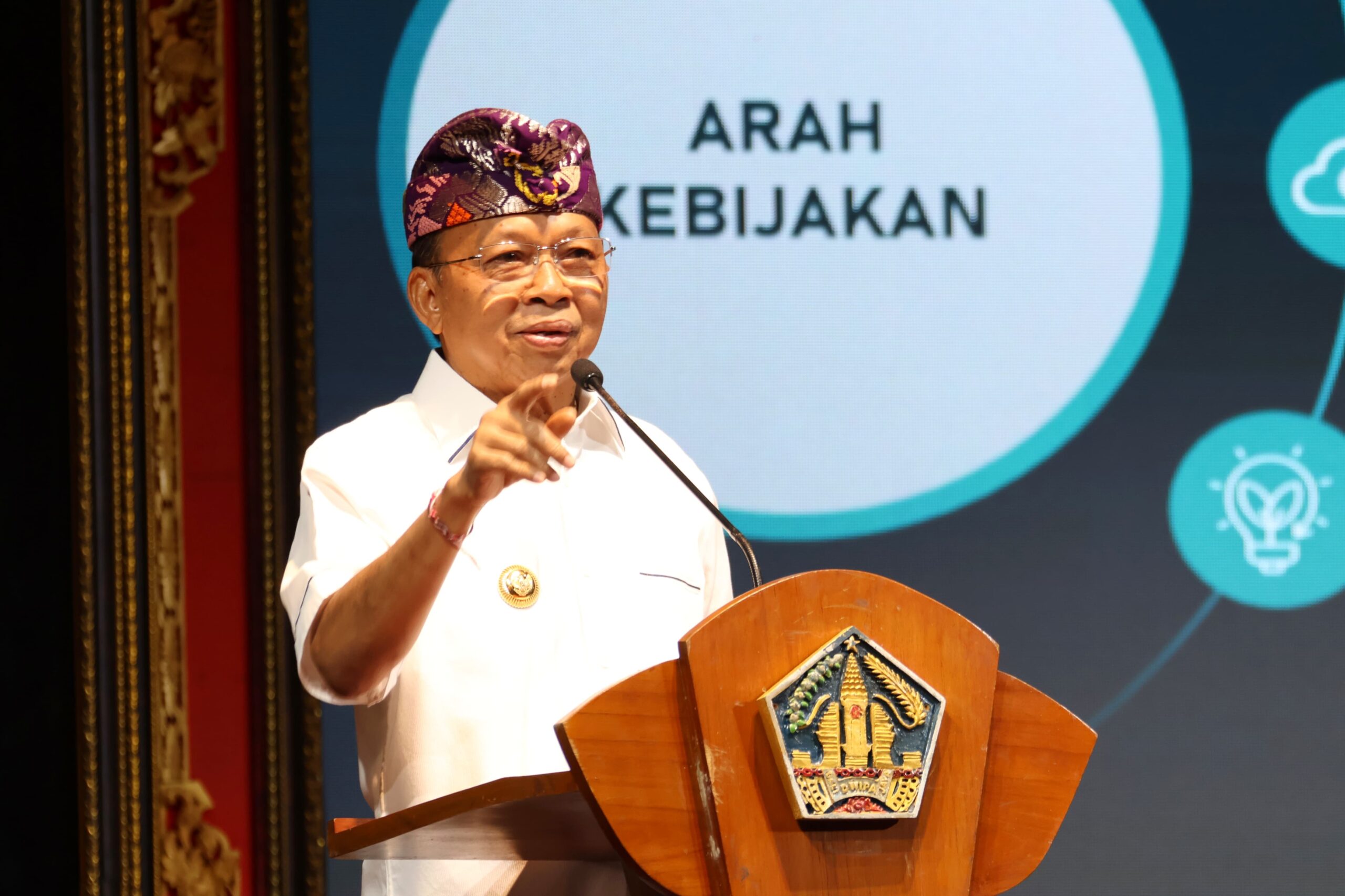Bali’s Bold Energy Vision: The Shift Toward Independence
In a powerful message that resonated across Indonesia’s sustainable development community, the Governor of Bali firmly declared that Bali energy independence is no longer a matter of choice—it’s a necessity. As the island province faces growing energy demands and the risks of continued dependence on fossil fuel-based imports, local leadership is pivoting decisively toward renewable energy.
Bali’s governor made this statement during a recent sustainability-focused event, reinforcing the province’s commitment to green development in line with Indonesia’s national targets for emissions reduction. The urgency behind the governor’s words reflects a deep understanding of the island’s vulnerabilities—both environmental and economic—if it continues relying on centralized fossil-fuel energy supplies.
For Bali, energy independence means more than just unplugging from Java’s coal-powered grid. It’s about taking ownership of its future through locally sourced, sustainable energy solutions that serve communities, protect natural beauty, and empower the island’s economy.
Why Energy Independence Matters for Bali
Bali’s energy supply is currently heavily reliant on Java’s power grid, which is dominated by fossil fuels. In fact, most of the electricity that powers homes, tourism facilities, and infrastructure in Bali is transmitted through undersea cables from Java. This arrangement, while practical in the past, is increasingly seen as unsustainable and risky.
There are three key reasons why Bali energy independence has become a non-negotiable issue:
- Energy Security: Overreliance on a centralized grid leaves Bali vulnerable to power outages and fuel price volatility. By developing its own renewable energy infrastructure, Bali can ensure consistent and stable energy access.
- Tourism-Driven Economy: Bali is a global tourist hotspot, and today’s eco-conscious travelers increasingly prefer destinations that invest in clean energy and sustainability. Energy independence can strengthen Bali’s global branding as an environmentally responsible destination.
- Climate Change Resilience: As a coastal region vulnerable to rising sea levels and extreme weather, Bali cannot afford to delay its renewable energy transition. Independent, clean energy systems can reduce emissions and help build climate resilience.
In this context, energy independence becomes more than a policy goal—it becomes a lifeline for sustainable survival and prosperity.
The Renewable Path Forward: Solar, Hydro, and Waste-to-Energy
Bali’s journey toward renewable energy independence will not be easy, but the island is well-equipped with natural resources to make it possible. The provincial government has laid out multiple strategies, focusing on locally available renewable energy sources such as:
- Solar Power: With high solar irradiance throughout the year, Bali has great potential for rooftop solar installations in homes, hotels, and public buildings. Large-scale solar farms are also being explored for rural electrification.
- Micro-Hydro: Several rivers in northern and central Bali offer opportunities for small-scale hydroelectric generation, especially for off-grid communities.
- Waste-to-Energy Projects: With tourism producing large amounts of organic and plastic waste, converting this into energy presents a dual benefit—addressing Bali’s waste problem while generating power.
In line with the governor’s vision, several pilot projects are already underway, such as the Kubu Renewable Energy Village and the Denpasar Solar Rooftop Initiative. These efforts, though small in scale, signal a broader movement toward community-based clean energy solutions.
Indonesia’s Ministry of Energy and Mineral Resources (ESDM) has also voiced support for Bali’s ambition, noting that the island could become a national model for decentralized, sustainable energy.
Challenges and the Road Ahead
While Bali’s commitment to energy independence is clear, the road ahead is not without obstacles. Among the key challenges are:
- Grid Readiness and Infrastructure
- To fully rely on renewable sources, Bali’s electrical grid must be modernized to handle variable energy input from solar and hydro. This includes investing in energy storage solutions like batteries and smart grid technology.
- Financing and Investment
- Large-scale renewable projects require substantial upfront capital. Bali needs partnerships with the private sector, international development agencies, and green financing platforms to turn its vision into reality.
- Public Awareness and Policy Support
- Building local ownership of the energy transition is crucial. Bali’s government must continue to engage communities, educate citizens on the importance of clean energy, and pass supportive regulations that incentivize adoption.
Despite these hurdles, Bali is moving forward. The provincial government is working on a Regional Energy Plan (RUED) that outlines its commitment to achieving a minimum of 50% renewable energy share by 2030. This includes both public and private sector targets, with a strong emphasis on solar adoption.
The central government’s Green Energy Corridor program also places Bali at the heart of Indonesia’s energy transition roadmap. If executed effectively, Bali could become the first energy-independent province in Indonesia—and a beacon of green innovation for the region.
Conclusion: Bali’s Green Future Starts with Local Power
The declaration by Bali’s governor is not just political rhetoric—it’s a call to action for all stakeholders in the island’s future. By prioritizing Bali energy independence, the province is taking a bold stand for sustainability, climate action, and economic resilience.
This move aligns with global trends where subnational regions are increasingly leading the charge in renewable energy transitions. From California to Copenhagen, the power of local leadership has proven to be instrumental in achieving ambitious climate goals.
Bali, with its unique cultural heritage and environmental richness, is perfectly positioned to become a leader in sustainable energy development. But it will require continuous collaboration, innovation, and long-term planning.
As the world watches Bali’s progress, one thing is clear: achieving energy independence here will not only light up homes but also inspire a generation toward building a greener, more self-reliant future.
Read More






 Wednesday, 25-02-26
Wednesday, 25-02-26







